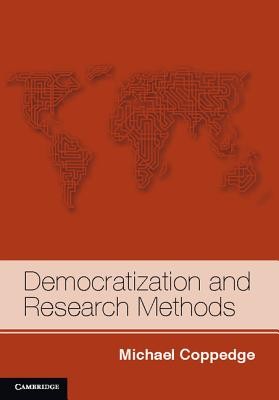
- We will send in 10–14 business days.
- Author: Michael Coppedge
- Publisher: Cambridge University Press
- ISBN-10: 0521537274
- ISBN-13: 9780521537278
- Format: 17.5 x 24.6 x 2.3 cm, softcover
- Language: English
- SAVE -10% with code: EXTRA
Reviews
Description
Democratization and Research Methods is a coherent survey and critique of both democratization research and the methodology of comparative politics. The two themes enhance each other: the democratization literature illustrates the advantages and disadvantages of various methodological approaches, and the critique of methods makes sense of the vast and bewildering democratization field. Michael Coppedge argues that each of the three main approaches in comparative politics - case studies and comparative histories, formal modeling, and large-sample statistical analysis - accomplishes one fundamental research goal relatively well: "thickness," integration, and generalization, respectively. Throughout the book, comprehensive surveys of democratization research demonstrate that each approach accomplishes one of these goals well but the other two poorly. Chapters cover conceptualization and measurement, case studies and comparative histories, formal models and theories, political culture and survey research, and quantitative testing. The final chapter summarizes the state of knowledge about democratization and lays out an agenda for multimethod research.
EXTRA 10 % discount with code: EXTRA
The promotion ends in 16d.12:54:29
The discount code is valid when purchasing from 10 €. Discounts do not stack.
- Author: Michael Coppedge
- Publisher: Cambridge University Press
- ISBN-10: 0521537274
- ISBN-13: 9780521537278
- Format: 17.5 x 24.6 x 2.3 cm, softcover
- Language: English English
Democratization and Research Methods is a coherent survey and critique of both democratization research and the methodology of comparative politics. The two themes enhance each other: the democratization literature illustrates the advantages and disadvantages of various methodological approaches, and the critique of methods makes sense of the vast and bewildering democratization field. Michael Coppedge argues that each of the three main approaches in comparative politics - case studies and comparative histories, formal modeling, and large-sample statistical analysis - accomplishes one fundamental research goal relatively well: "thickness," integration, and generalization, respectively. Throughout the book, comprehensive surveys of democratization research demonstrate that each approach accomplishes one of these goals well but the other two poorly. Chapters cover conceptualization and measurement, case studies and comparative histories, formal models and theories, political culture and survey research, and quantitative testing. The final chapter summarizes the state of knowledge about democratization and lays out an agenda for multimethod research.


Reviews